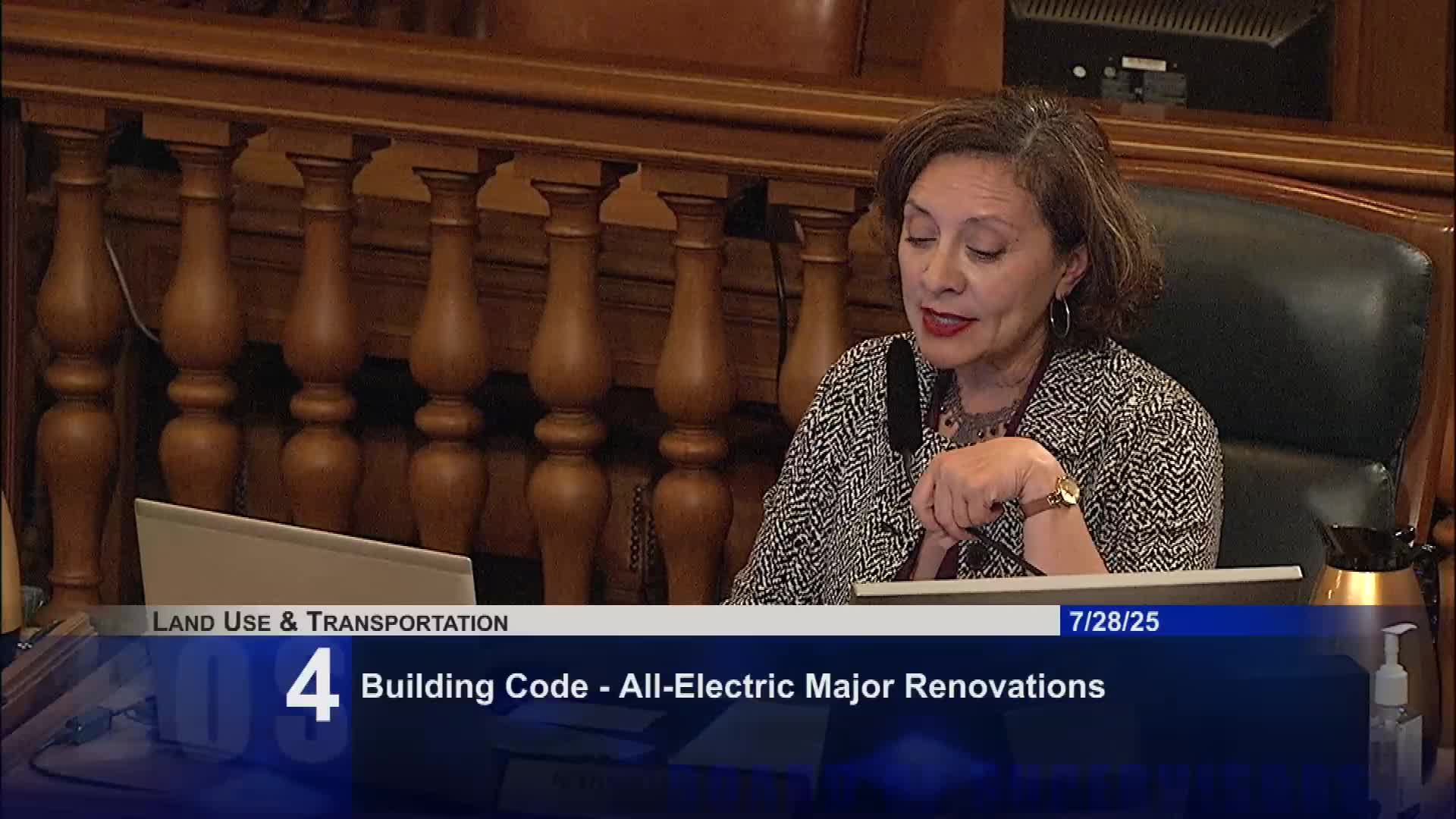Panel Discusses Seismic Safety Legislation and Concerns Over Electric Cooking Transition
July 28, 2025 | San Francisco County, California
This article was created by AI summarizing key points discussed. AI makes mistakes, so for full details and context, please refer to the video of the full meeting. Please report any errors so we can fix them. Report an error »

The San Francisco County government meeting held on July 28, 2025, addressed several critical issues, primarily focusing on environmental sustainability, seismic safety, and the impact of new legislation on local businesses and housing developments.
The meeting began with a discussion on the cultural significance of traditional cooking methods, particularly in Central American communities, where cooking over fire is prevalent. A speaker highlighted the health risks associated with fossil fuel emissions, particularly for women who are often responsible for cooking. This concern was juxtaposed against the need for a transition to more sustainable practices, emphasizing the importance of balancing health and environmental considerations.
Following this, the conversation shifted to seismic safety legislation. Chair Milgar led the discussion, acknowledging the concerns of property owners regarding potential costs associated with necessary renovations. The importance of understanding these costs before implementing significant changes was emphasized, with a call for further assessment to inform future decisions.
The meeting also clarified the legislation's impact on restaurants and food production spaces. It was noted that there is a specific exemption for restaurants, which has now been expanded to include other food-producing facilities, such as commercial kitchens and bakeries. This clarification aimed to alleviate confusion among stakeholders regarding the legislation's scope.
Additionally, the topic of affordable housing developers was addressed. Concerns were raised about the feasibility of all-electric retrofits for renovations by 2031. The response indicated a commitment to pursuing all-electric options while acknowledging potential funding challenges. To facilitate this process, a streamlined waiver system was proposed, allowing developers to demonstrate their efforts to secure funding and obtain necessary approvals efficiently.
In conclusion, the meeting underscored the complexities of balancing environmental mandates with community needs and economic realities. The discussions highlighted the ongoing efforts to ensure that legislative changes support both sustainability goals and the practicalities faced by local businesses and housing developers. Further assessments and streamlined processes were proposed as next steps to address these challenges effectively.
The meeting began with a discussion on the cultural significance of traditional cooking methods, particularly in Central American communities, where cooking over fire is prevalent. A speaker highlighted the health risks associated with fossil fuel emissions, particularly for women who are often responsible for cooking. This concern was juxtaposed against the need for a transition to more sustainable practices, emphasizing the importance of balancing health and environmental considerations.
Following this, the conversation shifted to seismic safety legislation. Chair Milgar led the discussion, acknowledging the concerns of property owners regarding potential costs associated with necessary renovations. The importance of understanding these costs before implementing significant changes was emphasized, with a call for further assessment to inform future decisions.
The meeting also clarified the legislation's impact on restaurants and food production spaces. It was noted that there is a specific exemption for restaurants, which has now been expanded to include other food-producing facilities, such as commercial kitchens and bakeries. This clarification aimed to alleviate confusion among stakeholders regarding the legislation's scope.
Additionally, the topic of affordable housing developers was addressed. Concerns were raised about the feasibility of all-electric retrofits for renovations by 2031. The response indicated a commitment to pursuing all-electric options while acknowledging potential funding challenges. To facilitate this process, a streamlined waiver system was proposed, allowing developers to demonstrate their efforts to secure funding and obtain necessary approvals efficiently.
In conclusion, the meeting underscored the complexities of balancing environmental mandates with community needs and economic realities. The discussions highlighted the ongoing efforts to ensure that legislative changes support both sustainability goals and the practicalities faced by local businesses and housing developers. Further assessments and streamlined processes were proposed as next steps to address these challenges effectively.
View full meeting
This article is based on a recent meeting—watch the full video and explore the complete transcript for deeper insights into the discussion.
View full meeting
